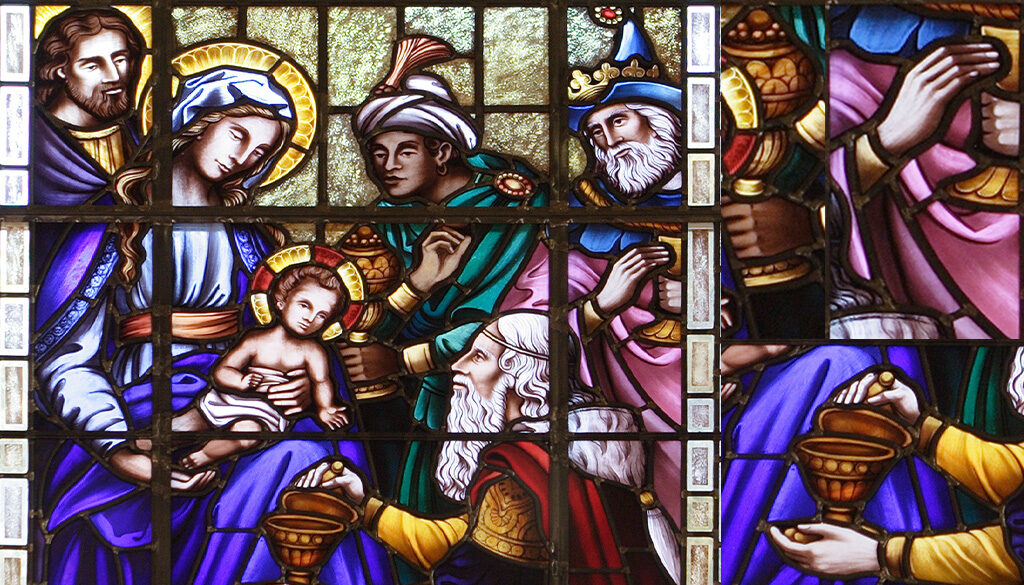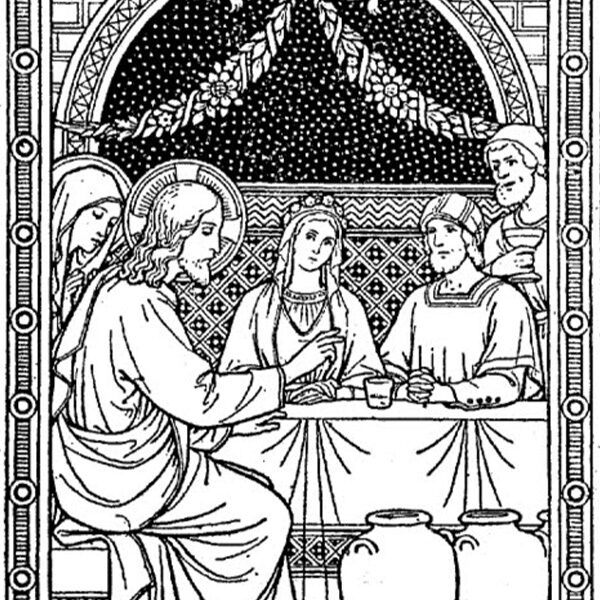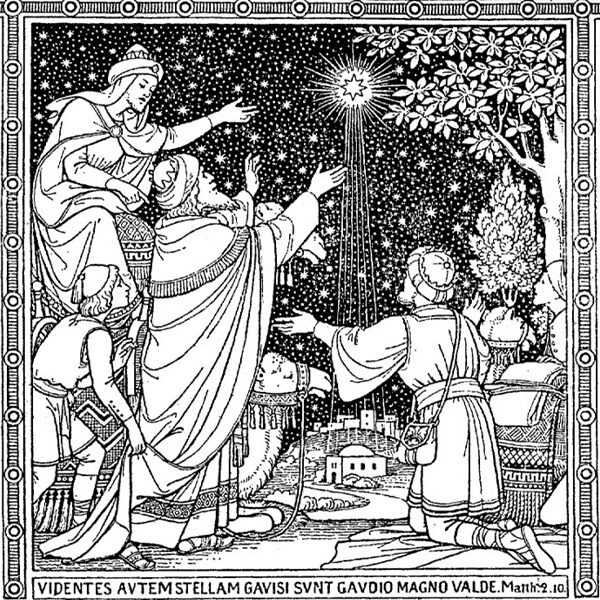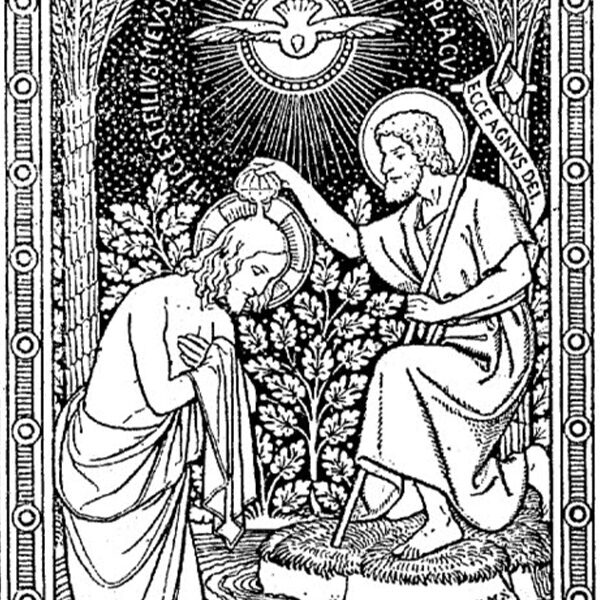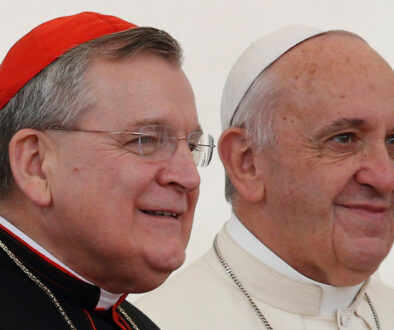King of Kings – Feast of Epiphany
The feast of Epiphany has long been an important part of the Christmas season. Some cultures celebrate it almost as a second Christmas Day. The event that this day primarily commemorates, the visit of the Magi to the Child Jesus, is mentioned in only one place in Scripture, in Matthew 2:1–12; yet the Church’s tradition has always seen great significance in this celebration.
Who are the Magi?
The key to the importance of Epiphany lies in its name. The word Epiphany comes from a Greek term meaning manifestation or appearance. When the Magi, travelers “from the east,” from foreign, Gentile nations, adored the Christ Child, for the first time God manifested Himself directly to the pagan peoples outside Israel.
This event, then, is a milestone in salvation history, beginning the fulfillment of God’s plan of worldwide redemption. This plan is foreshadowed in all the Old Testament prophecies referring to “the nations”; e.g. “I will give you as a light to the nations, that my salvation may reach to the end of the earth” (Isaiah 49:6). In the words of the Catechism:
In the magi, representatives of the neighboring pagan religions, the Gospel sees the firstfruits of the nations, who welcome the good news of salvation through the Incarnation … The Epiphany shows that “the full number of the nations” now takes its “place in the family of the patriarchs” and acquires Israelitica dignitas (are made “worthy of the heritage of Israel”). (CCC §528)
Jesus as Emmanuel
Earlier, this passage from the Catechism notes that the celebration of Epiphany also includes the Baptism of the Lord (which is honored with its own feast as well) and the Wedding at Cana. These events are each a manifestation of Jesus as Emmanuel, as God-with-us: Before the Magi, He was first made known to the Gentiles; at His Baptism, His divinity was publicly proclaimed by the voice of His Father; at Cana, He revealed His power in His first public miracle.
Epiphany, then, celebrates God’s revelation of Himself to mankind. It thus forms a valuable complement to Christmas, since we cannot recognize God’s coming without the help of His revealing grace. “You can’t understand Nativity without Epiphany,” says Fr. Hezekias Carnazzo, of the Institute of Catholic Culture, in a Catholic News Agency article. “Our human nature is blinded because of sin and we’re unable to see as God sees … [so] God reveals to us the revelation of what is going on.”
Looking East
A clear understanding of Epiphany thus shows its significance for each of our lives; the Magi represent all who long for and seek the face of the Lord and rejoice when at last they find Him. In the words of St. Leo the Great: “In the persons of the Magi let all people adore the Creator of the universe; let God be known, not in Judea only, but in the whole world, so that ‘his name may be great in all Israel’.”
Let us continue to look for Christ so that we may give all we have to Him who is King of Kings.
Epiphany Mass Options at the Shrine 2025
Sunday, January 5:
9:00 am – Traditional Latin
11:00 am Spanish
1:00 pm English
Monday, January 6:
6:00 pm – Usus Antiquior

